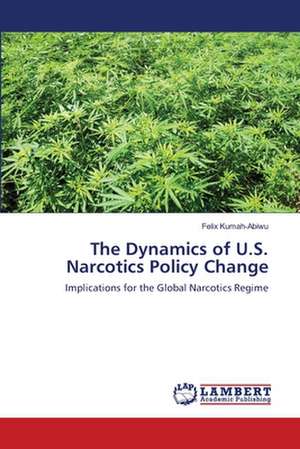The Dynamics of U.S. Narcotics Policy Change
Autor Felix Kumah-Abiwuen Limba Engleză Paperback – 24 mai 2012
Preț: 489.27 lei
Preț vechi: 531.81 lei
-8% Nou
Puncte Express: 734
Preț estimativ în valută:
93.63€ • 97.16$ • 78.26£
93.63€ • 97.16$ • 78.26£
Carte tipărită la comandă
Livrare economică 17-31 martie
Preluare comenzi: 021 569.72.76
Specificații
ISBN-13: 9783659002014
ISBN-10: 3659002011
Pagini: 368
Dimensiuni: 152 x 229 x 21 mm
Greutate: 0.54 kg
Editura: LAP LAMBERT ACADEMIC PUBLISHING AG & CO KG
Colecția LAP Lambert Academic Publishing
ISBN-10: 3659002011
Pagini: 368
Dimensiuni: 152 x 229 x 21 mm
Greutate: 0.54 kg
Editura: LAP LAMBERT ACADEMIC PUBLISHING AG & CO KG
Colecția LAP Lambert Academic Publishing
Notă biografică
Felix Kumah-Abiwu received his Ph.D. in Political Science (International Relations, Comparative/African Politics and Public Policy) from West Virginia University (WVU),where he teaches Africana Studies. His recent peer-reviewed article is on Elections and Democratization in Africa. He also studied at the University of Ghana and Ohio University.






